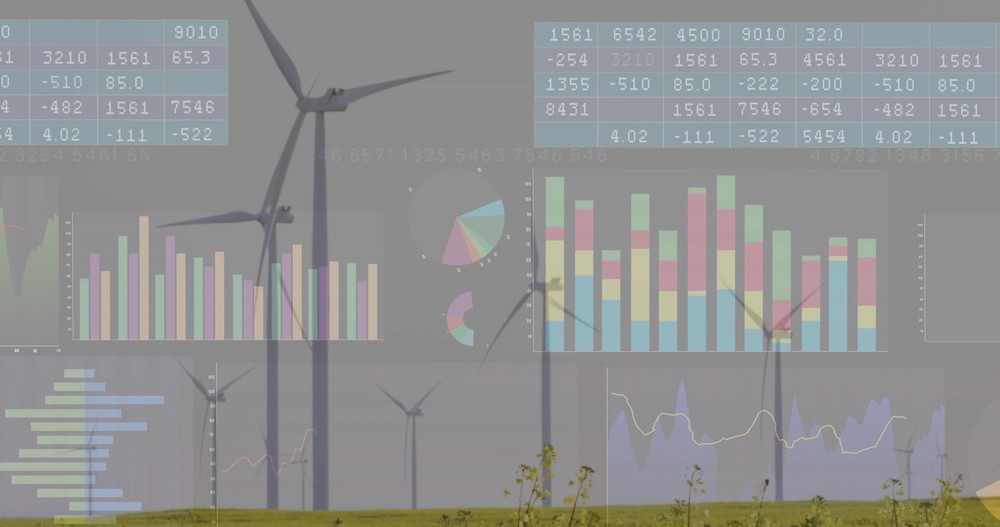Scholarship
Chevening and forging a path toward data driven change
Chevening-Siren Scholar Ahmad Moallem’s journey offers valuable insights for aspiring applicants and those interested in data-driven change.

Imagine stepping out of a London coffee shop at 6 PM, only to find it's likely the last cup you'll be able to buy until morning. For Ahmad Moallem, a 26-year-old Chevening-Siren Scholar pursuing an MSc in Data Science and Public Policy at University College London, this was just one of cultural surprises awaiting him in the UK.
"Coffee shops close around 6:00 PM, which is something I found quite intriguing," Moallem chuckles. "You always want a coffee when you're studying, and given current habits of studying, that's usually around 10:00 PM."
While adjusting to early coffee shop closures might seem trivial, it's these small cultural differences that often shape a scholar's experience abroad. But for Moallem, the real eye-opener has been his academic journey - one that's taking him from Excel spreadsheets to the cutting edge of data-driven policymaking.
Moallem's interest in data science grew from his previous internships. He noticed a gap in how data was being utilised: "They were using Excel and there wasn't any sort of hardcore training on what sort of methods to use, what sort of standards to go by, what sort of statistical programs are best."
The UCL course appealed to him because it offered advanced analytical techniques. “The course offers a sort of guidebook on how to use data to effect change. How do we assess policies? How do we craft them? How do we use previous data to infer on future success or lack thereof?”, Moallem explains.
He sees his studies as an opportunity to position himself at the forefront of a rapidly evolving field. "Data is going to be a huge thing in terms of tracking SDG progress, in terms of sort of devolving agency towards smaller groups within organisations," he explains. "If I could get in front of that and use my knowledge with the skills I've acquired to help advance Lebanon, then I think that'd be a job well done."
A blend of support and self-directed learning
Studying in the UK has presented Moallem with both challenges and opportunities. Comparing his Master’s course with the undergraduate program he took in Beirut he reflects: "My degree is more of 'we'll guide you through the first 10 weeks, but then you'll have to pick a topic and work on that.’ The working and direction is all on you.'"
This self-directed approach helps better prepare students for the labour market, but Moallem has also learned about himself through it. “You’re pushed to learn on the fly. I was surprised with how it was possible to quickly grasp something, apply it the next day, and then revisit some concepts through that,” he said.
That said, he did find a support network in Siren. “[Siren CEO] Marc Maouad and [Research Director] Carole Alsharabati were instrumental in helping monitor my progress, and also giving valuable advice throughout the year,” he said. “They set up this WhatsApp group where we shared insights, and they helped me pick out some of the optional modules, saying for example ‘this is redundant, you should focus on that a bit more, this has a brighter future’ and so on. That was really key.”
Moallem's current research focuses on using data science to predict carbon credit prices, combining economic indicators with sentiment analysis from news headlines.
“We use usually economic indicators to infer what the carbon credit price is going to be. But if a policy gets announced today that has effects in three years, firms are likely to start changing their behavior the day the news comes out,” he explains. “So does the sentiment from announcing a policy help predict what the price is going to be tomorrow or after tomorrow?"
Getting started in data-driven policymaking
This innovative approach exemplifies the potential for data science to address pressing global issues. For those interested in pursuing a similar path, Moallem advises: "Pick an industry you enjoy, that you think could benefit from the use of data and evidence-based policies. Get the basics done - learn a programming language, brush up on your maths."
Reflecting on the application process, Moallem advises potential applicants to carefully consider their personal narrative: "When you're doing an application, you're building your own narrative. You've got a few minutes to show the assessor who you are, what you've done, why you've done this, what you'd like to do, and why you'd like to do it."
He also emphasizes the importance of perseverance: "The Chevening Scholarship is there every year, so you don't lose anything by applying every year as well. Rejection is not necessarily a rejection of you.”
As Moallem's journey illustrates, the Chevening-Siren Scholarship is more than just a funding opportunity – it's a gateway to transformative experiences and global impact. His story challenges us to consider: What untapped potential lies within our own experiences? What global issues could we address with the right knowledge and tools?
"If you really know what you want to do, and you know how you want to do it, then the Chevening-Siren Scholarship is the way to go," Moallem affirms. His advice to potential applicants is clear: "Just go for it."